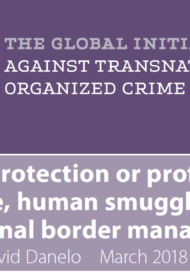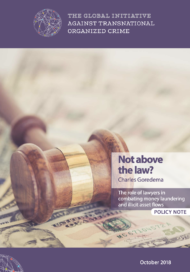Posted on 07 Mar 2018
For the past two decades, policy officials and human-rights groups in both Europe and the US have participated in a vicious cycle of criticizing each other over the impact of border-control policies. Many activists hold enforcement authorities responsible for the human impact of migration enforcement, evident in allegations of increases in human smuggling and the grim realities of migrant deaths. In contrast, policymakers often claim that human rights advocates encourage migration and risk-taking by proposing consequence-free international transit, which exacerbates the problem. Although the role of free-trade policies and supply chains is critical to understanding the border-management landscape in which these activities play out, customs laws are rarely considered by either side in this debate.
This policy paper considers the impact of multinational corporations on border control through so-called trusted trader and traveller programmes, whose aim is to reduce border inspections for individuals and companies by allowing inspectors to pre-screen cargo and passengers who pass background investigations. Although these programmes have become essential to the management of global supply chains, they often create an illusion of increased security while simultaneously intensifying the divide between those who are and those who are not willing to pay the fees to participate in them.
The paper also critically examines two pillars of American border policy – beyond-the-border initiatives and joint border management – and compares them with security elements of the European system. These mechanisms, which increased sharply through American-led initiatives following the 9/11 terrorist attacks, often appear effective and harmless, and therefore receive little scrutiny.
But both in the US and Europe, multinational border-control agreements have been subjected to little scrutiny, and there has been minimal effort to examine the impact on irregular migration and the protection of people on the move, as immigration policies become increasingly restrictive.




